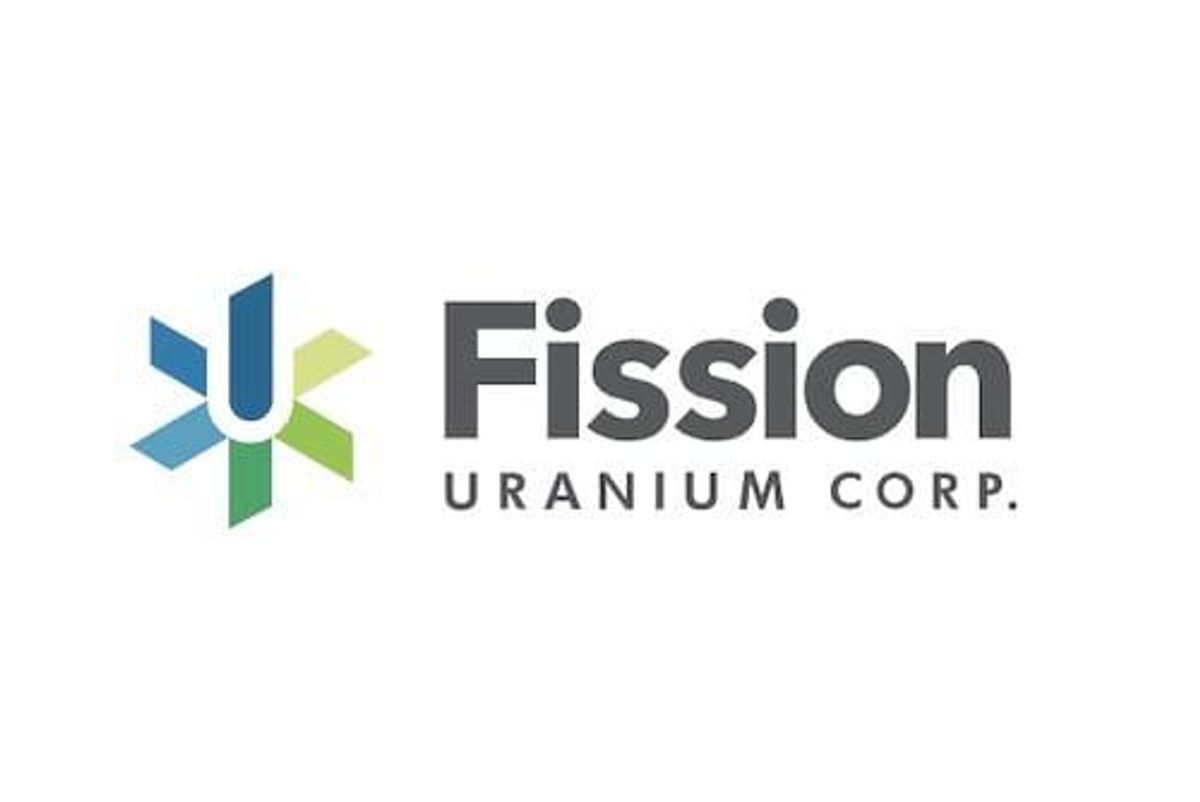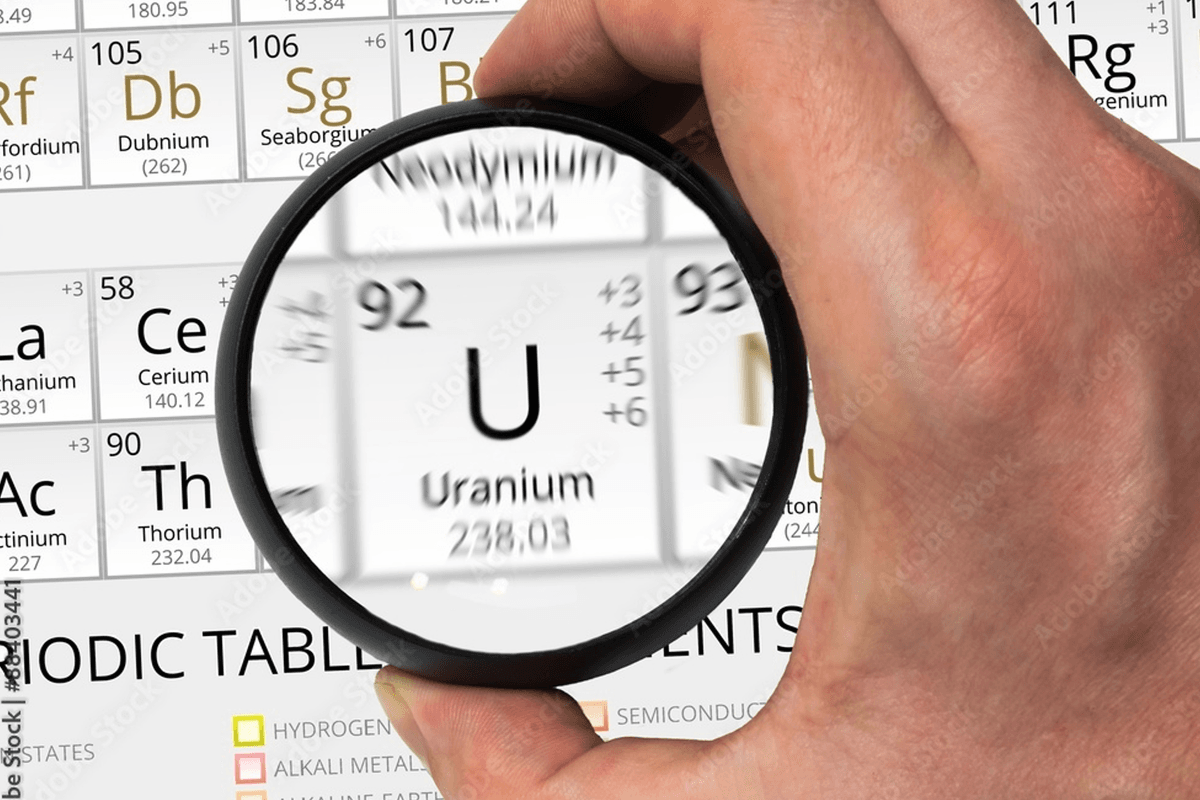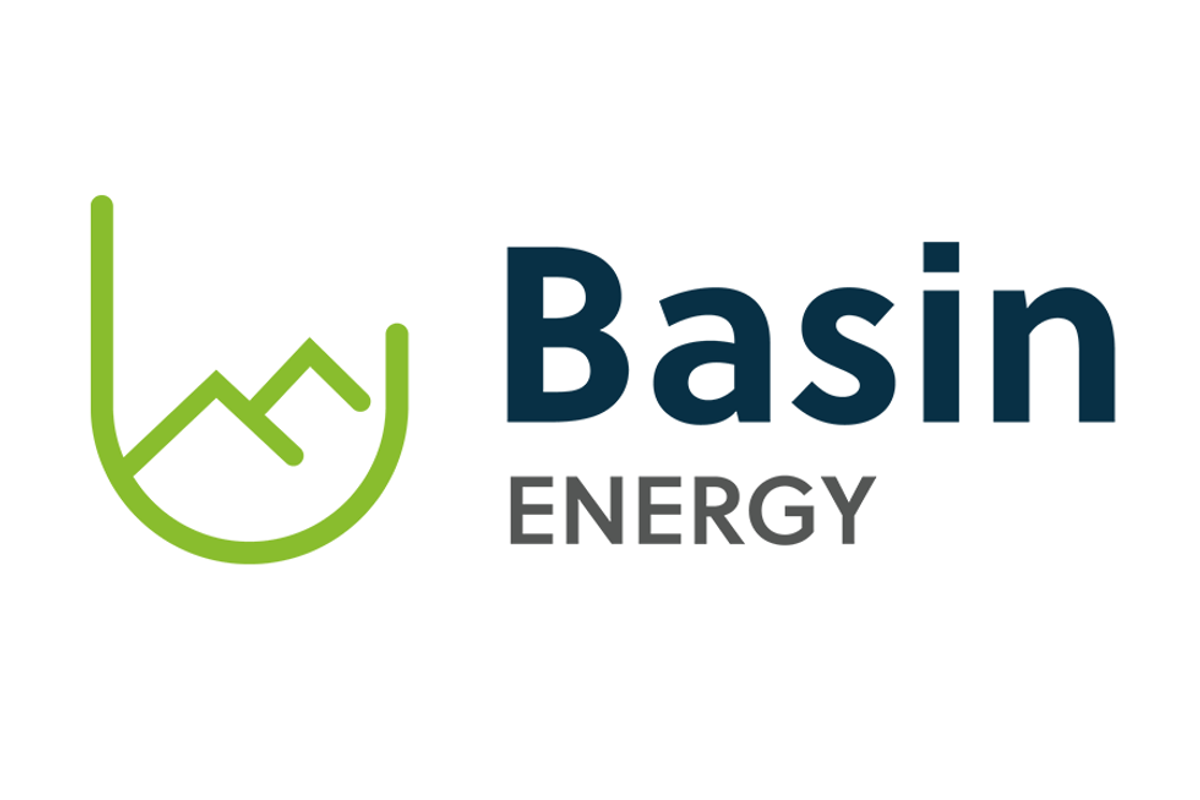
TSX SYMBOL: FCU
OTCQX SYMBOL: FCUUF
FRANKFURT SYMBOL: 2FU
Additional highlights include 82.5m of continuous mineralization with 8.74m composite +10,000 cps
FISSION URANIUM CORP. (" Fission " or " the Company ") is pleased to announce scintilometer results from the summer 2021 "metallurgical & geotechnical testwork" drilling on the R840W zone at its' PLS project, in the Athabasca Basin region of Saskatchewan Canada. Four metallurgical holes and three geotechnical holes were completed as part of the Phase 1 feasibility study field work (see News Release June 10 2021). All seven holes intersected mineralization with all four metallurgical and two geotechnical holes intersecting wide intervals of strong mineralization. They follow the recently announced, highly successful resource expansion drilling on the zone that hit high-grade mineralization in nineteen holes (see news release dated August 31, 2021 ). Of particular note, hole PLS21-MET-004 (line 615W) intersected 50.3m of continuous mineralization, including 28.5m of total composite radioactivity >10,000 cps (with a peak of 65,500 cps) . Assays are pending. The metallurgical and geotechnical testwork drilling at the R840W is part of the data collection in anticipation that the R840W zone will be included in the Feasibility Study.
Ross McElroy , President and CEO for Fission, commented, " The metallurgical and geotechnical testwork holes on the R840W zone serve a dual purpose. They not only provide material and information necessary for uranium extraction, processing and to support mine design, they also provide assay data. These new drill results highlight the impressive potential of the shallow, high-grade R840W zone. In particular, PLS21-MET-004 is extremely well mineralized over a significant width and is drilled near the western extent of the R840W zone. The results also increase our confidence in reaching our goal of upgrading the zone for inclusion in the upcoming feasibility study . "
Drilling Highlights
Highlight intersections from the drill program include:
- Hole PLS21-MET-004 (line 615W)
- 50.3m continuous mineralization (between 98.25m to 148.5m ), including
- 28.5m of total composite mineralization >10,000 cps ( 101.0m to 129.5m )
- Hole PLS21-MET-002 (line 765W)
- 82.5m continuous mineralization (between 99.5m to 182.0m ), including
- 8.74m of total composite mineralization >10,000 cps
- Hole PLS21-RM-001 (line 870W)
- 46.0m total composite mineralization over a 59.0m interval (between 159.0m to 218.0m ), including
- 5.2m of total composite mineralization >10,000 cps
R840W Zone Metallurgical Holes
Four large diameter HQ holes were collared and drilled vertically spaced over 180m of strike length to collect representative mineralized rock samples to be used for metallurgical testwork. The testwork is to verify the process required to extract U 3 O 8 efficiently and economically, and understand the grade variability and mineralogy impact on processing factors such as recovery of the R840W zone compared to the R780E zone.
R840W Geotechnical Testwork Holes
Three holes were collared as angle holes to collect rock samples to be used for geotechnical testwork. The testwork will verify the rock strength and ground conditions likely to be encountered, and provide data to be used in the design of ground support, tunnel and stope dimensions and mining sequencing. Additionally, samples were collected from the crown pillar area to analyse overall mining stability at the overburden/bedrock interface, to optimize ore recovery while maintaining overall mine stability.
Table 1: Drill Hole Summary – Metallurgical Holes
| Hole ID | Zone | Collar | Hand-held Scintillometer Results On Mineralized Drillcore (>300 cps / >0.5M minimum) | Overburden Depth (m) | lodgement Till | Mudstone | Sandstone | Basement Unconformity Depth (m) | Total Drillhole Depth (m) | |||||
| Grid Line | Az | Dip | From (m) | To (m) | Width (m) | CPS Peak Range | ||||||||
| PLS21-MET-001 | R840W | 795W | 218 | -89.9 | 117.0 | 166.5 | 49.5 |
| 63.2 | N/A | 99.3 | 104.3 | 104.3 | 200.0 |
| 170.0 | 172.5 | 2.5 |
| |||||||||||
| PLS21-MET-002 | R840W | 765W | 54 | -89.7 | 99.5 | 182.0 | 82.5 |
| 57.3 | 96.4 | N/A | 101.3 | 101.3 | 200.0 |
| PLS21- | R840W | 675W | 321 | -88.7 | 98.0 | 103.0 | 5.0 | 320 - 1400 | 76.0 | N/A | 94.00 | NA | 94.0 | 161.0 |
| | | 103.5 | 104.0 | 0.5 | 510 | |||||||||
| | | 107.0 | 147.5 | 40.5 |
| |||||||||
| PLS21-MET-004 | R840W | 615W | 271 | -89.7 | 98.25 | 148.5 | 50.3 | 65500 | 86.0 | N/A | 90.6 | 99.3 | 99.3 | 161.0 |
Table 2: Drill Hole Summary – Geotechnical Testwork Holes
| Hole ID | Zone | Collar | Hand-held Scintillometer Results On Mineralized Drillcore (>300 cps / >0.5M minimum) | Overburden Depth (m) | lodgement Till | Mudstone | Sandstone | Basement Unconformity Depth (m) | Total Drillhole Depth (m) | |||||
| Grid Line | Az | Dip | From (m) | To (m) | Width (m) | CPS Peak Range | ||||||||
| PLS21- | R840W | 870W | 360 | -73.8 | 159.0 | 181.0 | 22.0 | 65500 | 94.7 | N/A | 102.5 | 107.1 | 107.1 | 254.0 |
| 184.0 | 199.0 | 15.0 |
| |||||||||||
| 201.5 | 207.5 | 6.0 |
| |||||||||||
| 215.0 | 218.0 | 3.0 | 460 - 1300 | |||||||||||
| PLS21-RM-002 | R840W | 645W | 180 | -70.8 | 110.0 | 115.5 | 5.5 | 550 - 1900 | 86.3 | N/A | 99.1 | 105.2 | 105.2 | 245.0 |
| 118.1 | 119.0 | 0.9 | 340 - 370 | |||||||||||
| 153.0 | 153.5 | 0.5 | 1100 | |||||||||||
| 189.0 | 191.0 | 2.0 |
| |||||||||||
| 199.0 | 199.5 | 0.5 | 560 | |||||||||||
| PLS21- | R840W | 915W | 130 | -68.5 | 179.0 | 189.0 | 10.0 |
| 82.0 | N/A | 105.1 | N/A | 105.1 | 275.0 |
| 199.0 | 228.5 | 29.5 |
| |||||||||||
Natural gamma radiation in drill core that is reported in this news release was measured in counts per second (cps) using either a hand-held RS-230, RS-125 or RS-121 Scintillometer, all manufactured by Radiation Solutions, which are capable of discriminating readings up to 65,535 cps. In each hole, natural gamma radiation is also recorded in a down-hole survey measured in counts per second (cps) using a Mount Sopris 2GHF-1000 Triple Gamma probe, which allows for more accurate measurements in high grade mineralized zones. The Triple Gamma probe is preferred in zones of high-grade mineralization. The reader is cautioned that scintillometer readings are not directly or uniformly related to uranium grades of the rock sample measured, and should be used only as a preliminary indication of the presence of radioactive materials. The degree of radioactivity within the mineralized intervals is highly variable and associated with visible pitchblende mineralization. All intersections are down-hole. All depths reported of core interval measurements including radioactivity and mineralization intervals widths are not always representative of true thickness. The orientation of the mineralized intervals tend to follow that of lithologic contacts, and generally dip steeply to the south. Within the Triple R deposit, individual zone wireframe models constructed from assay data and used in the resource estimate indicate that all 5 zones have a complex geometry controlled by and parallel to steeply south-dipping lithological boundaries as well as a preferential sub-horizontal orientation.
Samples from the drill core will be split in half sections on site and where possible, samples will be standardized at 0.5m down-hole intervals. One-half of the split sample will be sent to SRC Geoanalytical Laboratories (an SCC ISO/IEC 17025: 2005 Accredited Facility) in Saskatoon, SK for analysis which includes U 3 O 8 (wt %) and fire assay for gold, and includes a 63 element ICP-OES analysis and boron. The other half of the split core remains on site for reference.
PLS Mineralized Trend & Triple R Deposit Summary
Uranium mineralization of the Triple R deposit at PLS occurs within the Patterson Lake Conductive Corridor and has been traced by core drilling over ~3.18 km of east-west strike length in five separated mineralized "zones" which collectively make up the Triple R deposit. From west to east, these zones are: R1515W, R840W, R00E, R780E and R1620E. Through successful exploration programs completed to date, Triple R has evolved into a large, near surface, basement hosted, structurally controlled high-grade uranium deposit. The discovery hole was announced on November 05, 2012 with drill hole PLS12-022, from what is now referred to as the R00E zone.
The R1515W, R840W and R00E zones make up the western region of the Triple R deposit and are located on land, where overburden thickness is generally between 55 m to 100 m . R1515W is the western-most of the zones and is drill defined to ~90 m in strike-length, ~68 m across strike and ~220 m vertical and where mineralization remains open in several directions. R840W is located ~515 m to the east along strike of R1515W and has a drill defined strike length of ~430 m. R00E is located ~485 m to the east along strike of R840W and is drill defined to ~115 m in strike length. The R780E zone and R1620E zones make up the eastern region of the Triple R deposit. Both zones are located beneath Patterson Lake where water depth is generally less than six metres and overburden thickness is generally about 50 m . R780E is located ~225 m to the east of R00E and has a drill defined strike length of ~945 m. R1620E is located ~210 m along strike to the east of R780E, and is drill defined to ~185 m in strike length.
The Company completed and filed a prefeasibility "PFS" study on November 07, 2019 titled "Pre-Feasibility Study on the Patterson Lake South Property Using Underground Mining Methods, Northern Saskatchewan, Canada ". The report summarizes the Pre-Feasibility Study ("UG PFS"), which outlines an underground-only mining scenario for PLS which to date has only considered the R00E and R780E zones. Further work, including additional drilling may provide sufficient data for future inclusion of the R1515W, R840W and R1620E zones into the Feasibility Study mine plan.
Mineralization along the Patterson Lake Corridor trend remains prospective along strike in both the western and eastern directions. Basement rocks within the mineralized trend are identified primarily as mafic volcanic rocks with varying degrees of alteration. Mineralization is both located within and associated with mafic volcanic intrusives with varying degrees of silicification, metasomatic mineral assemblages and hydrothermal graphite. The graphitic sequences are associated with the PL-3B basement Electro-Magnetic (EM) conductor.
Patterson Lake South Property
The 31,039 hectare PLS project is 100% owned and operated by Fission Uranium Corp. PLS is accessible by road with primary access from all-weather Highway 955, which runs north to the former Cluff Lake mine and passes the nearby Nexgen Arrow deposit located 3km to the east and UEX-Areva Shea Creek discoveries located 50km to the north.
The technical information in this news release has been prepared in accordance with the Canadian regulatory requirements set out in National Instrument 43-101 and reviewed on behalf of the company by Ross McElroy , P.Geol., President and CEO for Fission Uranium Corp., a qualified person.
About Fission Uranium Corp.
Fission Uranium Corp. is a Canadian based resource company specializing in the strategic exploration and development of the Patterson Lake South uranium property - host to the class-leading Triple R uranium deposit - and is headquartered in Kelowna , British Columbia. Fission's common shares are listed on the TSX Exchange under the symbol "FCU" and trade on the OTCQX marketplace in the U.S. under the symbol "FCUUF."
ON BEHALF OF THE BOARD
"Ross McElroy"
Ross McElroy , President and CEO
Cautionary Statement:
Certain information contained in this press release constitutes "forward-looking information", within the meaning of Canadian legislation. Generally, these forward-looking statements can be identified by the use of forward-looking terminology such as "plans", "expects" or "does not expect", "is expected", "budget", "scheduled", "estimates", "forecasts", "intends", "anticipates" or "does not anticipate", or "believes", or variations of such words and phrases or state that certain actions, events or results "may", "could", "would", "might" or "will be taken", "occur", "be achieved" or "has the potential to". Forward looking statements contained in this press release may include statements which involve known and unknown risks and uncertainties which may not prove to be accurate. Actual results and outcomes may differ materially from what is expressed or forecasted in these forward-looking statements. Such statements are qualified in their entirety by the inherent risks and uncertainties surrounding future expectations. Among those factors which could cause actual results to differ materially are the following: risks related to the Offering, risks related to Fission's limited business history, risks related to the nature of mineral exploration and development, discrepancies between actual and estimated mineral resources, risks related to uranium market price volatility, risks related to the market value of the common shares of Fission, risks related to market conditions, risks related to the novel coronavirus (COVID-19) pandemic, including disruptions to the Company's business and operational plans, risks related to the global economic uncertainty as a result of the novel coronavirus (COVID-19) pandemic and other risk factors listed from time to time in our reports filed with Canadian securities regulators on SEDAR at www.sedar.com . The forward-looking statements included in this press release are made as of the date of this press release and the Company disclaims any intention or obligation to update or revise any forward-looking statements, whether as a result of new information, future events or otherwise, except as expressly required by applicable securities legislation.
SOURCE Fission Uranium Corp.

![]() View original content to download multimedia: https://www.newswire.ca/en/releases/archive/September2021/07/c0297.html
View original content to download multimedia: https://www.newswire.ca/en/releases/archive/September2021/07/c0297.html






